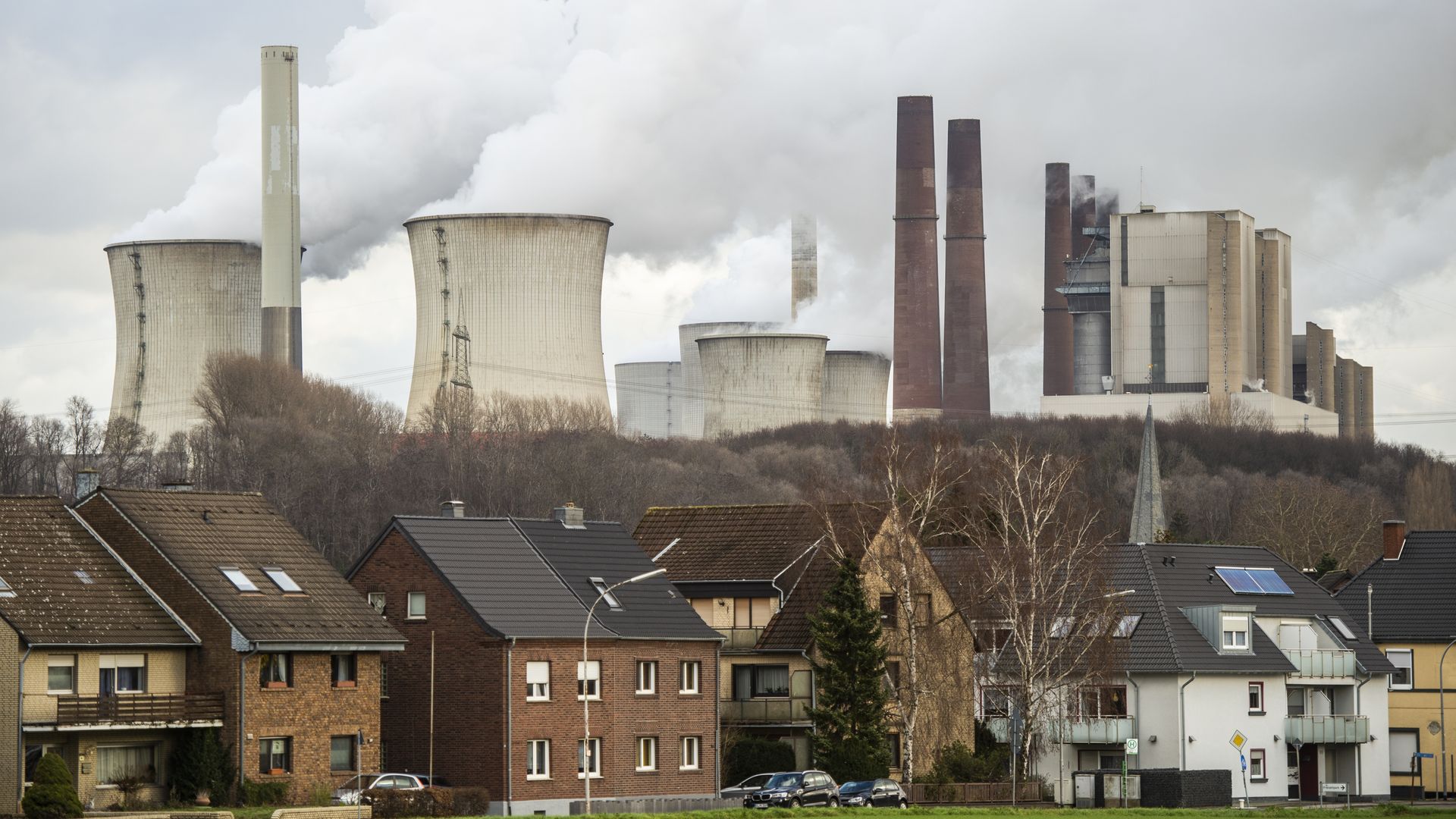Jan 28, 2019 - Energy & Climate
Expert VoicesGermany takes a decisive, if sluggish, step toward phasing out coal
Add Axios as your preferred source to
see more of our stories on Google.

Steam rising from the cooling towers of the Neurath lignite-fired power plant in Grevenbroich, Germany. Photo: Christophe Gateau/picture alliance via Getty Images
